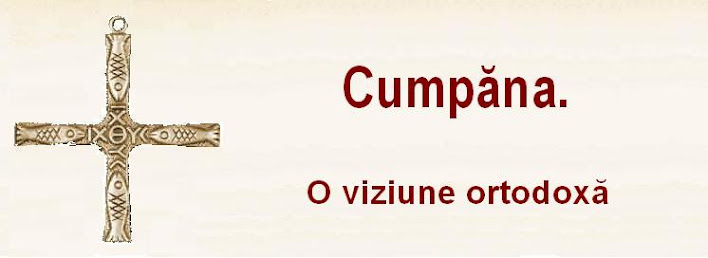As
some people may still know, Christians celebrate on March 25 the Feast of
Annunciation, honoring the „announcement made by the angel Gabriel to the
Virgin Mary that she would conceive and become the mother of Jesus, the Son of
God” (https://en.wikipedia.org/wiki/Annunciation).
Few
days after the bloody attacks in Brussels, some people felt the urge to argue
that Islam respects some good news of sorts (http://dilemaveche.ro/sectiune/tema-saptamanii/articol/coranul-noi);
thus, according to Qur’an, Jesus is only the son of Mary, and is “held in honor
in this world and the Hereafter and of (the company of) those nearest to Allah” (https://en.wikipedia.org/wiki/Annunciation).
Well, I know, “nearest” doesn’t get even close to what Christians understand by
the title “Son of God”, but it is still better than “farthest”, right?
We need to take our breath, to rest a little
in this short interlude between those crimes in Brussels and the next. Some people use this moment to
pray; some, to draw inspirational graffiti. Others, to write some motivational junk,
which, in different circumstances, might have been more appropriate or even educational.
We are
offered this kind of stuff in order to understand why Western people do tend to
go off so often these days: probably because they did not read the Qur’an. Or, maybe,
because they did not believe in it. But they should have, and they will. Because
there is not only a seducing, but also an explosive power in the Qur’an that
you cannot ignore with impunity.
The
main point, at least according to the subject matter approached this week by Dilema veche (The Old Dilemma http://dilemaveche.ro/)
is that Islam came in peace. Sure, it may very well be that for Muslims the word
has a different meaning. For instance, a meaning very close to the Martian
incantation (https://www.youtube.com/watch?v=x-2VmohG_Pk).
However,
there is nothing to worry about: don’t you see, it’s only a misunderstanding! In
spite of this unfortunate cultural difference, deep down, at the bottom, we all
speak about the same things: God, peace, Jesus Christ, Son of God... Well,
maybe not this last one, but who cares? The rest of the stuff still looks just fine!
“Today is the beginning of our salvation,
And the revelation of the eternal mystery!
The Son of God becomes the Son of the Virgin
As Gabriel announces the coming of Grace.
Together with him let us cry to the Theotokos:
«Rejoice, O Full of Grace, the Lord is with
you! »”
This
is the Orthodox hymn for the Feast of the Annunciation (https://en.wikipedia.org/wiki/Annunciation).
The terms look nonnegotiable: “The Son of
God becomes the Son of the Virgin”. One cannot respect Christ unless
believes in His unique divinity. That guy who, according to Islam, abides
“nearest” God, doesn’t exist. If he does, he is just another guy, as different
from Christ as their Annunciation and peace is from ours.
Not
long ago, Romanian Orthodox Christians used to consult a certain confession
guide before going to confession. Among several popular such confession guides there
was the one compiled by Father Nicodim Măndiță. Listing the sins against the
First Commandment, Father Nicodim placed the sin of religious relativism: “Am zis că toate religiile
sunt bune” („I [i.e., the penitent] have said
that all religions are good”).
Nevertheless,
today’s Romanian Orthodox Christians seem to prefer other confession guides. The
glossy ones, those that tell you that not only all religions are good, but that
they are all the same.
In Romania, religious relativism found a good soil to grow. After
years of manifest hostility expressed by the Communist regime towards religion
in general and Christianity in particular, Christians are inclined to welcome
heartily any manifestations of recognition. Maybe this is why Mr. Andrei Pleșu,
founder of Dilema veche magazine, is
held to great esteem by the high ranks of Romanian Orthodox Church’s clergy,
enjoying an unquestioned reputation as a leading Christian Orthodox
intellectual. The fact that Dilema veche
understood to advocate the true nature of Islam in the aftermath of the Brussels attacks will not diminish this reputation. Neither
the synchronization between this abrupt intervention in favor of Islam and the
Holy Week, the liturgical period celebrated these days by the Catholic nations.
After all, Good Friday is one of those moments when people feel compelled to
make a choice. For God, the Good Friday might have been the best day to die.
But from the perspective of human beings, any day when God dies is the worst of
all days. We don’t want a dying God. We don’t need a dead God. We want a
bestselling God. We don’t need a God on a damn Cross. We need the only one God who
is smart enough to stay safe in the heaven above. And to remain there.
So
maybe Christians might not want to go that far in their welcoming response. One
may not want to take tolerance for love and respect for faithfulness. Even if
religious relativism is only a part of the new morality that replaced the old
moral relativism, [1] Christians may
rather want to stay cautious. After all, such a disposition should be part and
parcel of what the old ascetic treatises called “paza minții”, “the keeping of one’s mind”.
If
we indeed love the true peace and crave after it, we should know better. Not
from fancy magazines like Dilema veche,
but from the Bible itself, one of the very foundations of our faith, as is told
by the tradition of the Church, the other firm foundation of our faith: “And
the peace of God, which passeth all understanding, shall keep your hearts and
minds through Christ Jesus” (Philippians 4:7).
Note:
[1] “America’s new moral code is much different than it was prior
to the cultural revolution of the 1960s and 70s. Instead of being centered on
gender roles, family values, respect for institutions and religious piety, it
orbits around values like tolerance and inclusion.” http://www.theatlantic.com/politics/archive/2016/03/the-death-of-moral-relativism/475221/
